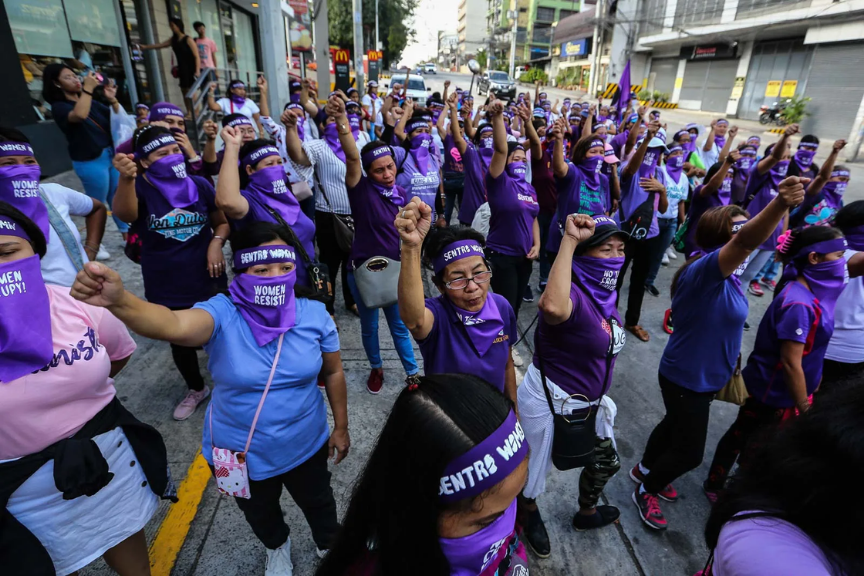What is the Anti-Violence Against Women and Their Children Act of 2004
Trigger warning: This blog mentions physical and sexual violence against women and children. In the 2024 Women and Men Fact Sheet released by the Philippine Statistics Authority (PSA), results showed a disturbing number of 19,228 women aged 15-49 have experienced various forms of physical and sexual violence. This 2022 National Demographic and Health Survey (NDHS) by the PSA tells of an alarming fact that violence against women and children (VAWC) persists in the Philippines. As of February 2024, there was a total of 16.9% increase in the cases reported to the Philippine National Police Crime Information, Reporting and Analysis System (PNP CIRAS) from 11,307 cases in 2022 to 13,213 cases in 2023. A number of 7,161 cases in 2022 and 7,764 in 2023 (8.4% increase) are violations against Republic Act No. 9262, or the Anti-Violence Against Women and Their Children Act of 2004. Additionally, 2,191 cases (1,575 girls and 616 boys) of child abuse or violence against children were reportedly served by the Department of Social Welfare and Development (DSWD) in 2023. This is a 39.4% decrease from the previous 3,616 cases in 2022, however, the point stands that this is still a serious problem in the country. “Violence against women (VAW) appears as one of the country’s pervasive social problems,” said the Philippine Commission on Women (PCW), the government-mandated agency at the center of women’s and children’s rights supervision, enforcement, and protection. As such, this Women’s Month and the upcoming celebration of Girl Child Week per Proclamation No. 759, s. of 1996, awareness of women’s and children’s rights and the laws that protect them is once again underscored. Anti-Violence Against Women and Their Children Act of 2004 (RA 9262) The Anti-Violence Against Women and Their Children Act of 2004, or simply the Anti-VAWC Act, seeks to recognize and address the need to protect the family and its members particularly women and children, from violence and threats to their safety and security. According to the UN Declaration on the Elimination of Violence against Women in 1993, VAW is “any act of gender-based violence that results in or is likely to result in physical, sexual or psychological harm or suffering to women, including threats of such acts, coercion or arbitrary deprivation of liberty, whether occurring in public and private life. Gender-based violence is any violence inflicted on women because of their sex.” Following this and other international human rights instruments to which the Philippines is a party, the Anti-VAWC Act defines ‘violence against women and children’ as any act or a series of acts committed by any person which result in or is likely to result in physical, sexual, psychological harm or suffering, or economic abuse What is considered VAWC under the Anti-VAWC Act? VAWC includes: Likewise, Section 5 of the Act clarifies which acts qualify as a crime of VAWC. These include the following: Penalties against violations and crimes under Anti-VAWC Act The penalties of committing an act listed in RA 9262 vary and depend on the severity of the act. Act of Violence Duration of Penalty Attempt to harm the victim 1 month and 1 day – 6 months Place the victim in fear of imminent physical harm 1 month and 1 day – 6 months Threaten to or does self-harm to control the victim’s actions or decisions 1 month and 1 day – 6 months Restrict the victim from doing something through force or intimidation 6 months and 1 day – 6 years Force the victim into doing something through force or intimidation 6 months and 1 day – 6 years Attempt to or do any form of sexual violence on the victim 6 years and 1 day – 12 years Cause emotional or psychological distress to the victim through behaviors such as stalking, destroying the victims property, etc. 6 years and 1 day – 12 years Cause mental or emotional anguish, public ridicule, or humiliation to the victim 6 years and 1 day – 12 years If the acts are committed while the woman or child is pregnant or committed in the presence of her child, the penalty to be applied shall be the maximum period of penalty prescribed in the section. In addition to imprisonment, the perpetrator shall pay a fine of not less than P100,000.00, but not more than ₱300,000.00. He or she must also undergo mandatory psychological counseling or psychiatric treatment and shall report compliance to the court. Protection Orders While a victim can file a case against his or her perpetrator for his or her act of violence, it doesn’t guarantee with certainty that the perpetrator won’t endanger the victim again. To prevent this from happening, the victim can apply for a protection order. A protection order prevents further acts of violence against a woman or her child. It also provides these victims other forms of necessary relief. A protection order aims to safeguard the victim from further harm, minimizes disruption in the victim’s daily life, and facilitates the victim’s opportunity and ability to independently regain control over her life. There are three types of protection orders that may be issued under this Act: the barangay protection order (BPO), temporary protection order (TPO) and permanent protection order (PPO). Barangay Protection Orders, or BPOs, refer to the protection order issued by the Punong Barangay ordering the perpetrator to desist. A Punong Barangay shall issue the protection order to the applicant on the date of filing. If the Punong Barangay is unavailable to act on the BPO application, the application shall be acted upon by any available Barangay Kagawad. BPOs are effective for fifteen days. Temporary Protection Orders, or TPOs, refer to the protection order issued by the court on the date of filing of the application. They are effective for thirty days. The court shall also schedule a hearing on the issuance of a PPO prior to or on the TPO’s expiration date. Permanent Protection Orders, or PPOs, refer to protection orders issued by the court after a notice and hearing. The court
What is the Anti-Violence Against Women and Their Children Act of 2004 Read More »











